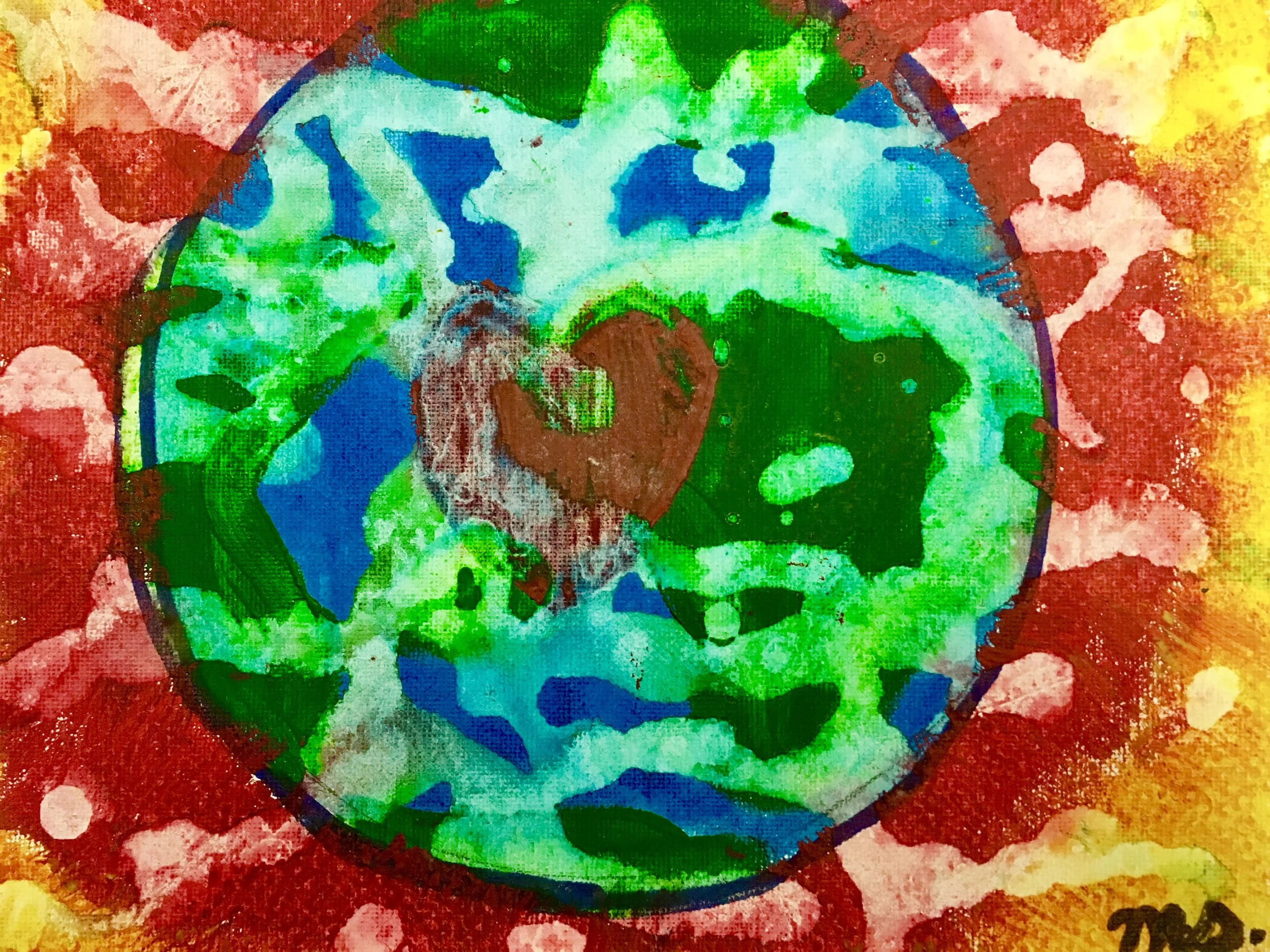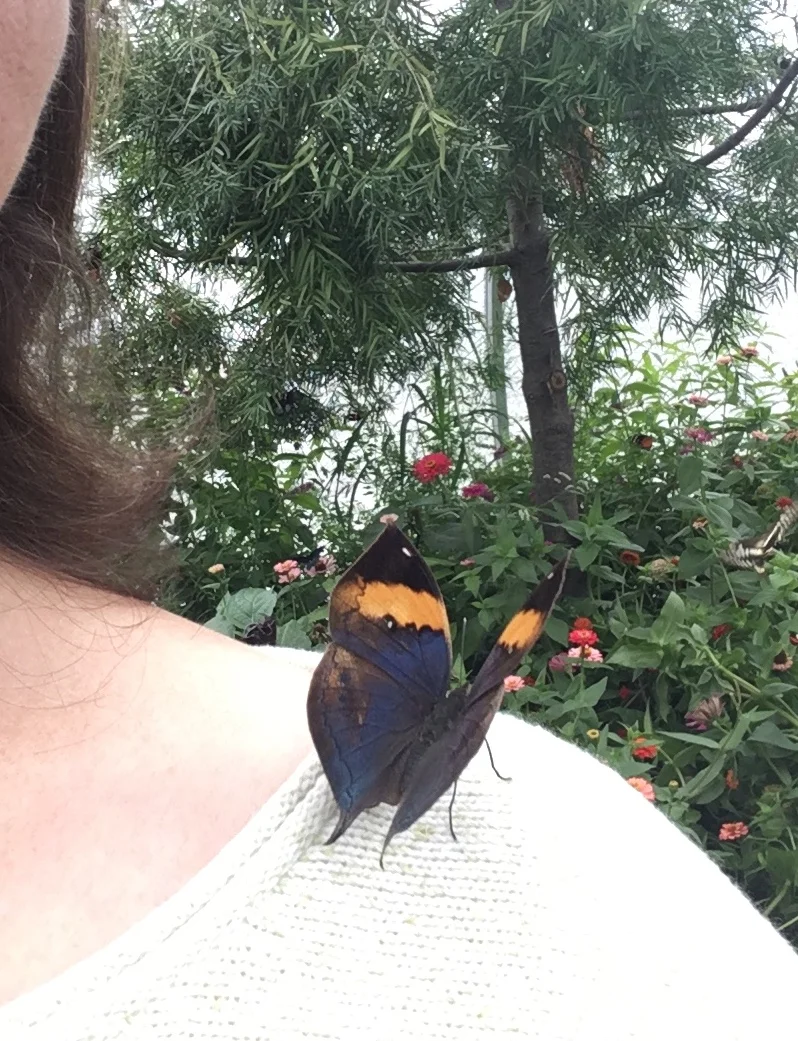Imagine! While Miguel and I shared this d’var Torah on the bima at Mount Zion Temple in Saint Paul, back in Honduras Sindy was delivering her baby - the little pumpkin in this picture. As soon as we’d finished speaking, Miguel rushed to the lobby where he got on the phone with Viktor who shouted with joy, “It’s done!” And mama and baby were both doing great. Welcome to the world, little one! When we learn his name in the days or weeks ahead (in Honduras, many people wait to name their babies to see if they will survive.) I’ll be sure to share it here.
Read MoreOne of the great gifts of having been a Jewish educator and youth worker for decades is that many of my ‘kids’ have grown up. This past week, I had the absolute delight to study Torah with the next generation of my ‘kids’ hours after he arrived. Today, I also had the privilege to officiate at his bris and share his name with him, his family, and his community.
Read MoreV’etchanan
Deuteronomy 3:23 - 7:11
When we form a covenantal relationship, some kind of mystery happens and even as we retain our own identities, we also form something new that only exists within that relationship. In that relationship, perhaps we reside in the leiv hashamayim– in the interior, the center, of the expanse. The heart of the heavens.
CHUKAT NUMBERS 19:1 – 22:1
We thought that when God said, “It is not good for human beings to be alone,” (Genesis 2:18) God responded by creating a couple. What the Karen people understand, and we would do well to learn, is that God didn’t stop with that couple. God created us to be family.
This just in: Come to Shabbat AT PRIDE! I’m leading! Shana is singing! ASL Interpreter! Go here for more information!
KORACH: NUMBERS 16:1 - 18:32
A person, he taught, is God’s business partner. Financially, it’s not a 50/50 partnership. Even though within this worldview everything a person gains in the world comes from God, God is a 9/10th stakeholder.
SHELACH: NUMBERS 13:1 - 15:41
There had been something between Miriam and Batya from the moment their eyes settled on one another at the Nile. It wasn’t love, nothing like that. Yet.
BEHA'ALOT'CHA: NUMBERS 8:1 - 12:16
When someone is ill, we go beyond the letter of the law. We find them where they are. We learn what they need and we do something about it. We join them . . . nothing fancy. We just . . . join them. And we reach out with a hand and with others we catch them, or we take on some of their weight. We hold them. El na refa na la.
BAMIDBAR: NUMBERS 1:1 - 4:20
This past weekend, I had the honor of being the officiant in two weddings. On Sunday afternoon, I stood under the chuppah with Heather and Oliver, and shared these words of Torah with them and with their community.
BEHAR - BECHUKOTAI: LEVITICUS 25:1 - 27:34
If we refuse to be alert to the needs of the earth, the earth will refuse to be alert to ours. The wolves also must eat. So must the spiders. And the mosquitoes. And the butterflies. There is a time and place for new understandings of ancient texts. If ever there were such a time, it is now.
*Note: I know that’s not a monarch in that picture!
EMOR: LEVITICUS 21:1 - 24:23
What does it mean to be a Jewish man? I am well-aware of my hubris in challenging the paradigm as a cis-gendered queer woman, but I find the Jacob/Esau dichotomy harmful. I think it fractures our community.
Read MoreACHREI MOT & KEDOSHIM (Leviticus 16:1 - 20:27)
Everything we have ever been as a people informs who we are and who we will become, but it isn’t predictive. We aren’t made to be predictable. We are created b’tzelem Elohim, in the image of God, holy because God is holy, made to be . . . creative. We hold our tradition and our traditions close, but we have also survived because we have embraced changes.
Read MoreTazria Metzora
It’s almost Shabbat. This one isn’t polished. What is it?
Take a look.
SHMINI (LEVITICUS 9:1 - 11:47)
According to our sages, there is a fundamental difference between the light of the first seven days and the light of the eighth day. For seven days, the light is the illumination God spoke into existence. On the eighth day, God taught humanity how to make light. It is the light of our partnership with God in the work of creation.
Read MorePASSOVER
As we gather for our seders, we have an opportunity to bless our children - those born to us and taught by us. May we bless them for who they are, in all that they are. May we bless them in their infancy, their childhood, their adolescence, and their adulthood
TZAV (LEVITICUS 6:1 - 8:36)
Deeds of compassion and kindness toward all creation are of greater significance to God than sacrifices.
VAYIKRA (LEVITICUS 1:1 - 5:26)
“Whom shall I send?” God called.
Every thread of Isaiah's being responded, “Here I am. Send me!”
VAYACHEL-PEKUDEI (EXODUS 35:1−40:38)
My perception of Vayachel-Pekudei is forever shaped by my memories of a young woman developing her voice and claiming her own style of leadership, of the sweet, plump cheeks of a baby who needed to come in his own time – even though some of us worried that it was maybe a little early, of his mother’s hand on the top of his big brother’s head, and of his father’s intense and loving eyes gazing down at him.
With his parents’ permission, I share with you the words I shared with him.
Read MorePURIM
This year, informed by Nowruz and in observance of Purim, let’s think about how we might reach out diplomatically with the intention to increase love and friendship between ourselves and others.
TETZAVEH (EXODUS 27:20−30:10)
It feels so foreign, the story of needing special cloth and fur, of gold and silver, crimson and purple and blue linen and embroidery, special stones, layers of covering to connect with God. The ornamental clothing of the Priest is described in this parsha in dramatic and exacting detail.
TERUMAH (EXODUS 21:1−24:18)
Check it out. It’s not the miracles. It’s not what God does for us that transforms us. It is what we do together with God. Sometimes, it’s even what we think we have done for ourselves, and then realize we didn’t actually do it alone.




















